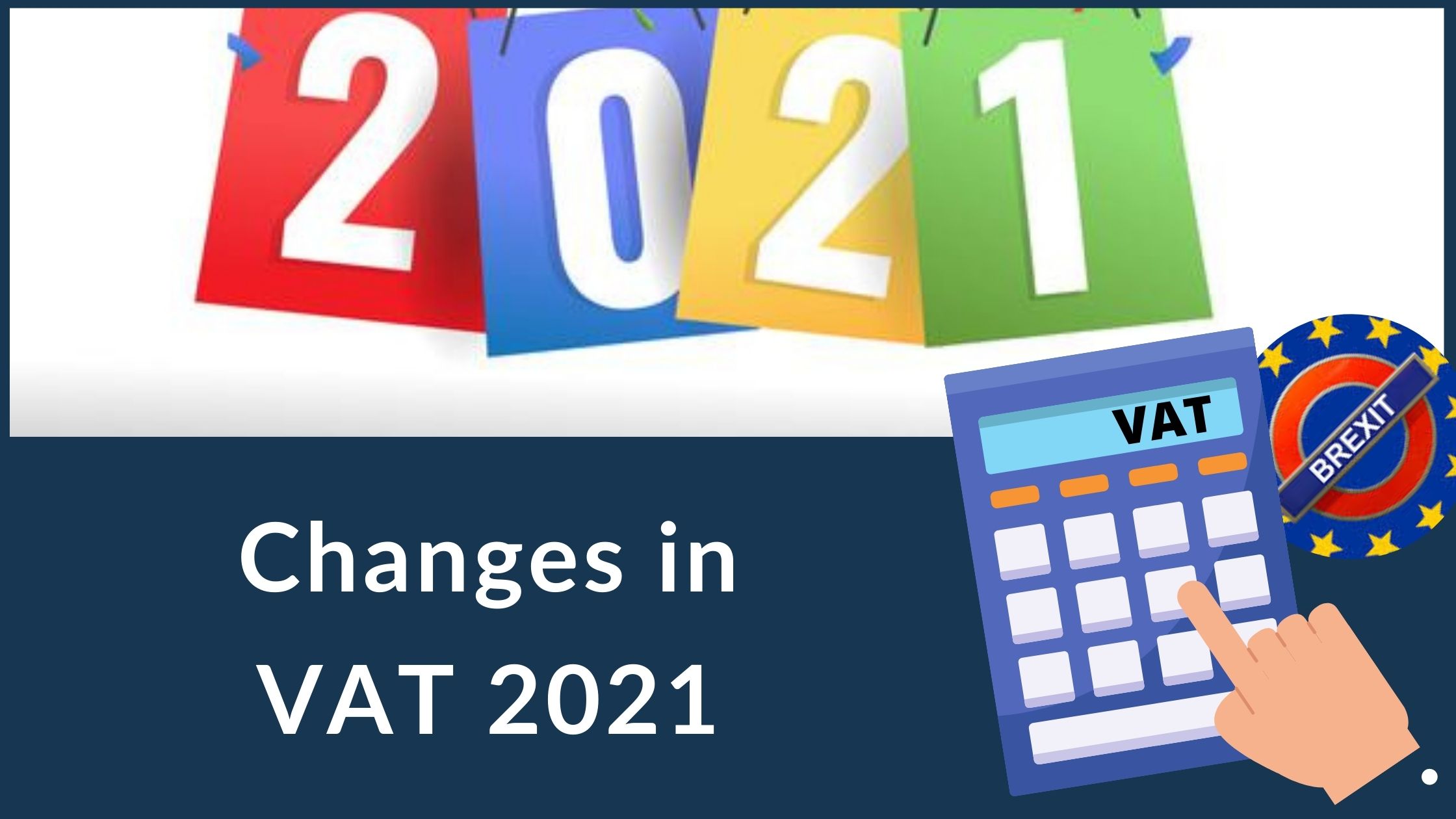Changes in VAT From 01 January 2021

January 13, 2021
The transition period is over and now from this month, we need to follow the new rules for VAT. While most VAT rules and procedures remain the same as before there are a few changes one must know if they are trading with the EU and abroad.
VAT is charged on most goods and services supplied by UK businesses. The ones supplied to the EU are also exports now and the acquisition to be treated as an import. So far, the rules were different but now whether the goods come from an EU or non-EU country may not matter.
Here are changes in VAT from 1st January 2021
Importing Goods from the EU
Imports from the EU will be treated as imports from non-EU countries. However, there are some changes.
Postponed VAT Accounting
- The government has launched "Postponed Accounting" for import VAT on goods brought into the UK
- From 1 January 2021, instead of paying import VAT when the goods arrive at the UK border, UK VAT registered businesses will be able to account for import VAT on their VAT return.
- This is more like acquisition tax, but instead of Box 2 VAT will be recorded in Box 1.
- Customs declarations and the payment of any other duties remain as before
- Duty deferment
- Customs and excise duty payments can be deferred and can be settled monthly with a duty deferment account.
Businesses require to register with HMRC to open a duty deferment account and should provide a bank guarantee.
Online Marketplaces and Overseas Sellers
- Online marketplaces and overseas sellers are responsible for collecting and accounting for the VAT.
- Even if the goods are in the UK at the point of sale, Online marketplaces will be responsible for VAT.
- Goods with a value of up to £135
- Import VAT Will be collected on goods with a value of up to £135 at the point of sale and not at the point of importation.
- Thus, UK supply VAT, rather than import VAT, will be due to them.
This includes B2B sales. Nevertheless, if the customer provides its VAT Registration number to the seller, the customer can account for VAT using reverse charge.
Exporting Goods to the EU
- From 1 January 2021, all sales are zero-rated exports.
- Now (unlike before) import VAT and any customs duties (tariffs) will be due when the goods arrive in the EU. (like other non-EU countries)
- No distance selling thresholds. Whether your sales are above £ 70,000 and whether you have registered for VAT in the EU, all are zero-rated exports. (Earlier the distance selling threshold was £ 70,000 crossing which the seller had to be registered in the country he sold goods to the individuals i.e. B2C).
- Goods sold to NI are UK supply and VAT is due on the same.
- Common Transit Convention
Common Transit Convention (CTC) can be used to complete some customs procedures away from the border and defer import VAT and customs duties until goods reach their final destination.
EC Sales List
- Businesses in Northern Ireland will continue but UK VAT registered businesses no longer have to complete an EC Sales List.
- Just like exports to non-EU countries, evidence to prove that goods have left the UK need to be retained while exporting goods to EU businesses AT zero Vat.
- (Earlier in case of B2B you had to obtain the VAT number of your customer to complete EC Sales List).
Sales of Services
- ‘Place of supply’ determine the country in which you need to charge and account for VAT
Reverse charge rules for B2B continue
Sales of Digital Services
- The UK VAT Mini One Stop Shop (MOSS - an online service that allows EU businesses selling digital services to consumers in other EU member states to report and pay VAT via a single return and payment in their home member state) can no longer be used.
- UK businesses will have to register for the VAT MOSS non-union scheme in an EU member state.
- From 1 January 2021, supplies of digital services to customers in EU member states are liable for VAT in the consumer’s member state.
- The £8,818 annual threshold no longer applies (for cross borders sales of digital services to EU consumers).
- VAT will be charged at the rate where the customer is based and declared to the relevant EU member state.
Businesses wishing to use Moss scheme must register by the 10th day of the month following a sale. For example, if you make a sale in February 2021 you will need to register by 10 March 2021.
EU VAT refund
- UK businesses can still recover VAT incurred in other EU countries but not using the electronic system that was used till now.
- It will need to be done using the existing refund system for non-EU businesses.
- Since the same differs in each EU country, businesses will need to check the precise requirements in each EU country where they incur VAT.
Outsourcing VAT services to Doshi Outsourcing makes your life easy. With more than 20 years of experience in UK Accounting we have helped many accounting firms and small businesses for their VAT accounting.
Call us on 0208 239 4999 or Email:Dhruv@doshioutsourcing.com


